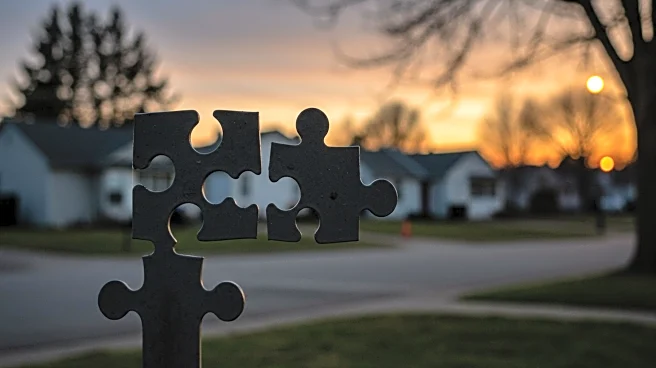What's Happening?
The Windsor Square Association, representing a historic Los Angeles neighborhood, has expressed strong opposition to Senate Bill 79. The bill aims to facilitate the development of multifamily housing in areas currently zoned for single-family homes. Despite amendments intended to make the bill more palatable, the association argues that SB 79 remains fundamentally flawed and would harm stable communities. The association contends that the bill prioritizes developer profits over community needs and fails to address affordable housing. They emphasize that Los Angeles has already established state-certified housing goals through a collaborative planning process, which focuses on building housing along commercial corridors near public transit, negating the need to alter single-family zones.
Why It's Important?
The opposition to Senate Bill 79 highlights the ongoing debate over housing development and zoning laws in California. The bill's potential passage could significantly alter the landscape of low-density neighborhoods, impacting property values and community dynamics. Critics argue that it undermines local zoning protections and caters to special interests rather than addressing the affordable housing crisis. The outcome of this legislative battle could set a precedent for future housing policies in Los Angeles and other cities, affecting thousands of residents and shaping urban development strategies.
What's Next?
The Windsor Square Association has called on Assemblymember Buffy Wicks and the California State Assembly Committee on Appropriations to vote against SB 79. The committee's decision will be crucial in determining the bill's fate. If the bill advances, it may face further scrutiny and opposition from community groups and local governments. The debate over SB 79 is likely to continue, with stakeholders from various sectors weighing in on the implications for housing policy and community planning.
Beyond the Headlines
The controversy surrounding SB 79 raises broader questions about the balance between development and community preservation. It underscores the tension between state-level housing mandates and local control over zoning decisions. The bill's focus on increasing housing density could lead to long-term shifts in urban planning, challenging traditional notions of neighborhood identity and community cohesion.









